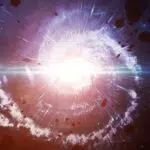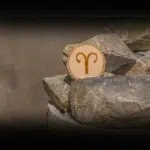Big Bang Day is observed on March 21 every year to mark the anniversary of Planck Collaboration’s first all-sky map. The astute discovery presented a coherent selection of cosmic microwave background radiation and confirmed the standard model of cosmology. The new map determined the accurate parameters of the model. Big Bang Day brings all space nerds together to celebrate another right step in the direction of understanding the hidden secrets of the universe our planet inhabits. We are encouraged to think beyond our little boxes and attempt to unfurl the great mysteries of our lives.
History of Big Bang Day
On March 21, 2013, over 15 months of observation came to fruition when the European Space Agency (E.S.A.) released an all-sky map that traced the oldest existing light in the Universe. The news of the discovery sent waves of awe and inspiration across the world, and the first Big Bang Day was celebrated by enthusiasts of space discovery. The day marks the turning point in our study of the Big Bang Theory, forever changing the cosmic calendar and the realm of inter-terrestrial discovery.
Big Bang Day is named after the Big Bang, the great cosmic event that created the world. The Big Bang Theory states that the formation of our universe is a result of an explosion that began with a single hot and dense point and reverberated through the end of time. According to the theory, the cosmos is still expanding, meaning we are still in the aftermath of the event that took place billions of years ago. The newfound Planck data set new values for the speed at which the universe is expanding right now. The Hubble constant changed the set value in astronomy and concluded that the Universe is 13.82 billion years old.
Since 2013, the day has been marked with celebratory gatherings, stretching from Jakarta, Beirut, and New Orleans, all the way to Amsterdam and Rio. Black Hole-themed parties are thrown in honor of the Big Bang, and performances are delivered by the invitees. Hundreds of distinguished professionals deliver lectures, educating people about the developments in space.
Big Bang Day timeline
Belgian priest Georges Lemaître proposes the theory of an “explosion” that gave birth to the Universe, articulating the Big Bang for the first time.
Several competing theories about the formation of the universe, including the Steady State, are laid to rest as Big Bang gains the general consensus for the first time.
NASA reaffirms the Big Bang by getting pictures of the universe that feature the cosmic background radiation through the WMAP spacecraft.
The initial Planck measurements, extracted by the E.S.A., trace the oldest-existing light in the universe.
Big Bang Day FAQs
What is the Big Bang afterglow?
The Big Bang’s glow is an illumination created by the leftover particles still visible in outer space. For 13.8 billion years, the afterglow has existed in all directions of the Universe at all times.
Is the Big Bang Theory 100% right?
There is 100% consensus among the scientific class that the Big Bang Theory is correct. However, the theory cannot be proven right or wrong due to several unknown variables.
Will the Big Bang happen again?
Another Big Bang is expected to occur in the next 2.5 billion years. Theories like the Big Crunch profess the return of the Big Bang.
How to Observe Big Bang Day
Hop on a telescope
Even though you couldn’t possibly catch the cosmic rays of the universe, a glance at Saturn, Uranus, and some stars, is good enough. Mark the night with an hour-long extrapolation of the grand space, and marvel at all the secrets it is hiding.
Honor the science
Scientific curiosity has revealed many secrets of the world and continues to improve our lives in every way possible. On March 21, honor the people in STEM by acknowledging their contributions to society, and pledge your support to improving the scientific temper of your community.
Have a Big Bang Theory marathon
Talking about space and the Big Bang seems incomplete without mentioning Sheldon Cooper who has dominated the cultural ‘nerdy’ sphere for almost a decade with his witty comebacks. Celebrate Big Bang Day in literal terms by dedicating a day (or a week) to binge-watching re-runs of the epic sitcom.
5 Of The Weirdest Facts About The Big Bang
A universal experience
The Big Bang occurred everywhere simultaneously, as the universe has no concept of an edge or a center.
It’s inconclusive
The Big Bang describes the event that led to the creation of the world, but it cannot tell the exact starting point of the rupture.
Christianity and science
The first concrete conclusion about the formation of the universe was professed by a Christian priest in the early 1920s.
The name remains controversial
The name ‘Big Bang’ was coined by astronomer Fred Hoyle, who was against the concept and wished to trivialize it.
The gift of water
The creation of helium and hydrogen, which makes life possible on Earth, is credited to the Big Bang.
Why Big Bang Day is Important
A right step in the direction of discovery
Planck’s discovery takes us a step closer to unmasking the ultimate mystery of the universe. We celebrate the day to honor the dedicated scientist, as they work hard to reveal more secrets of the deep universe.
The search for truth continues
The Big Bang reveals that the universe was created as a result of a race against gravity. It is the ultimate origin story, presenting conclusions on where we are headed. The deeper the study gets, the more we can uncover the secrets ourselves.
We are all stardust
There's a sense of unison that is professed by the discovery of the Big Bang. It reminds us of how small we are, how our differences seem so trivial in the face of the great cosmic universe. It is a good reminder to never take ourselves too seriously because we are all stardust anyway.
Big Bang Day dates
| Year | Date | Day |
|---|---|---|
| 2026 | March 21 | Saturday |
| 2027 | March 21 | Sunday |
| 2028 | March 21 | Tuesday |
| 2029 | March 21 | Wednesday |
| 2030 | March 21 | Thursday |




















































